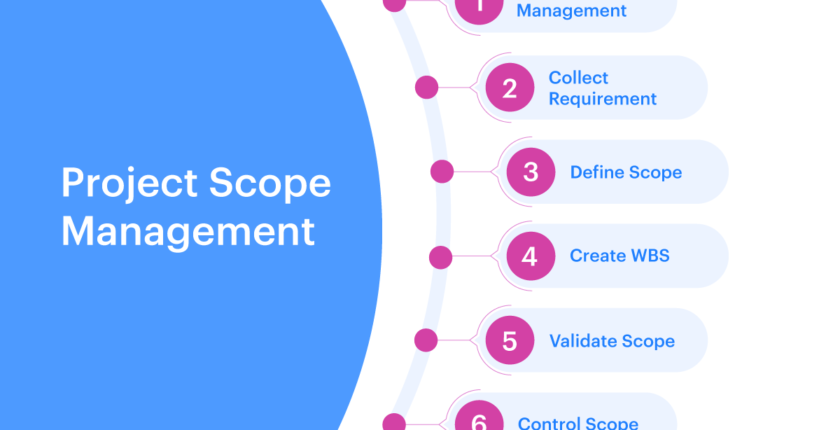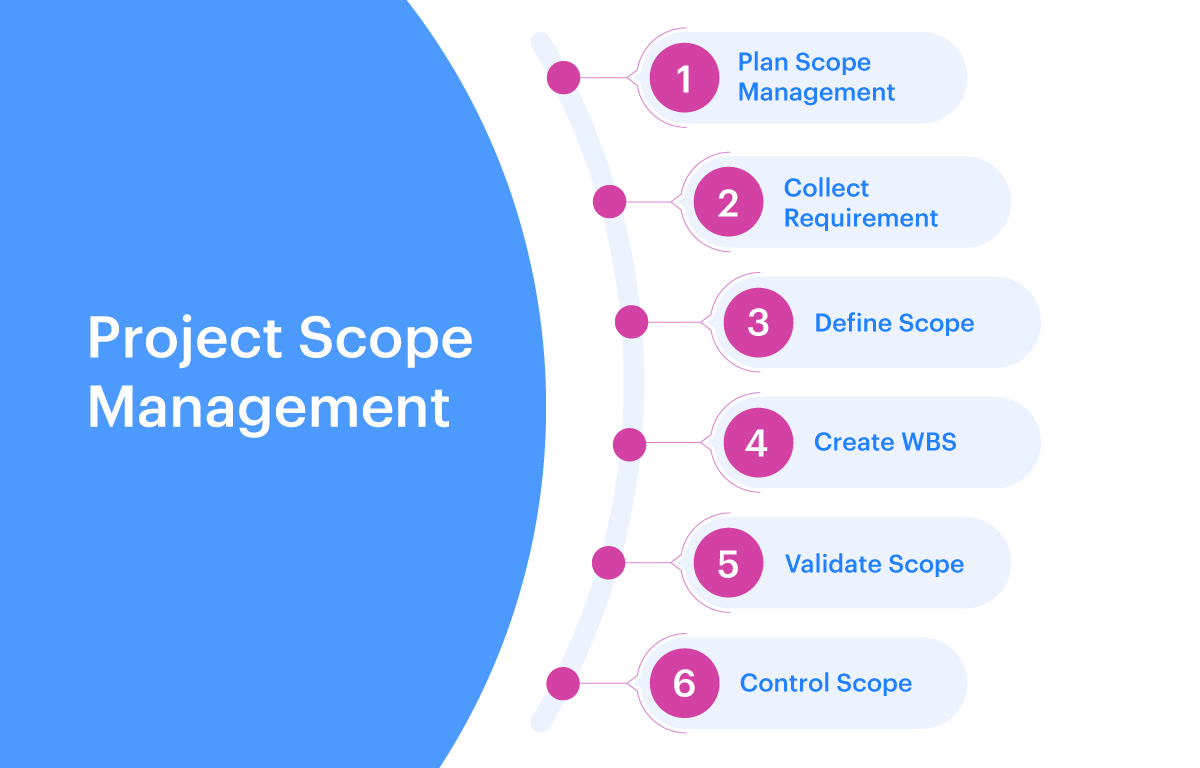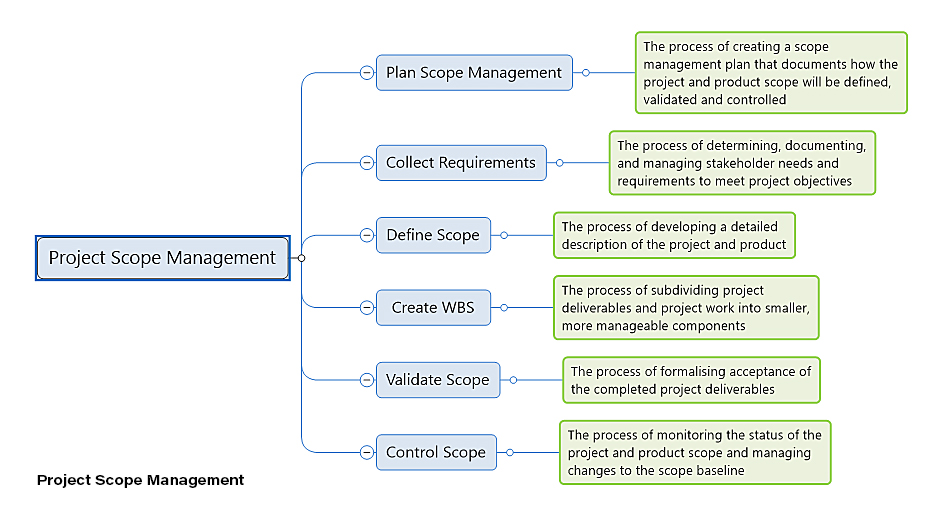Project Scope Management: Why is it important?


Project scope management defines and outlines all work included within a project, such as objectives, tasks, outputs, and deadlines. It identifies and documents all project objectives, goals, deliverables, deadlines, and budgets during the planning process. Modifications are common in project management, particularly in large projects.
Understanding Project Scope Management
Scope refers to the detailed set of deliverables or features of a project. These deliverables are derived from a project’s requirements. The Project Scope is also defined as the work that needs to be accomplished to deliver a product, service, or result with the specified features and functions.
Here we have broken the term into its main feature to make it easier for you to understand it better.
Planning
The management is responsible for planning, organizing, staffing, directing, and controlling a company to fulfill its objectives. Planning is the most crucial and fundamental step in the process. If employees working in different groups need to perform effectively, they should be aware of what they need to do, how it should be done, and when it should be completed.
Managers need to understand all aspects of an enterprise to manage resources efficiently, reduce organizational expenses, and motivate employees.
Organizing
This step involves identifying the activities required for achieving organizational goals. The management is responsible for the following activities:
- Identifying steps needs for achieving organizational goals,
- Grouping activities and creating jobs,
- Assigning the jobs to individuals and departments,
- Delegating authority to allow the employees to perform their tasks and use the resources whenever required, and
- Forming a network for coordinating activities.
Coordinating
It is the process of establishing relationships among different parts of an organization. It helps in ensuring that all the departments and employees are working towards the same organizational goals. Therefore, it is connecting all organizational operations, decisions, efforts, and activities to attain unity for achieving the set objectives.
Directing
It is the process of directing the like a lighthouse in the middle of economic ocean that helps people working to perform efficiently by giving their full effort to achieve the organizational goals. Tasks and assignments are to be clear to the employees to avoid any workspace mess or hectic environment. Employees need to maintain motivation to contribute their best efforts and guidance during the job performance.
Controlling
It ensures that departmental, divisional, sectional, and individual performance is in alignment with the organizational goals and objectives. Any deviation from the path of the plans should go through under amendment process, investigation, and correction by the management. Managers should review and modify the activities whenever deviations are occurring. It is a crucial part of the nature and scope of project management.
Branches
Following are the operational aspects or branches of management
- Marketing Management
- Production Management
- Office Management
- Personnel Management
- Financial Management
Let’s understand each one of these branches in detail.

Marketing Management
Marketing management is the organization, planning, direction, and controlling the people’s activities operating in the marketing department of an organization while aiming to achieve the enterprise’s objectives. You can consider it as a process of finding and assessing the customers’ requirements to fulfil them through products or services. It aims to make the final consumer aware of the products or services to make them interested in the same with a focus on profitability. Marketing management ensures that the available resources are used optimally to get the best possible results.
Some of the important aspects of marketing management covers are sales promotion, market research, branding, marketing policy, distribution channels, market analysis, after-sales service, sale-mix, and many others. As you can see, marketing management is a huge aspect of any enterprise.
Production Management
Production refers to creating utilities. Their creation happens when we convert raw materials into our desired finished products. So, production management is the section of management which by scientific regulation and planning runs that division of the organization which is responsible for actually translating the raw materials into finished products. Without production, a business won’t generate its products or services, that’s why production management is so vital for its success.
Production management handles the planning and regulation of the production process because, without them, the final product wouldn’t satisfy the customers, causing the business to close its doors. Some of the business aspects production management covers are quality control, plant layout, production type, simplification, research and development, etc.
Office Management
Office management deals with controlling and coordinating all of the office activities to achieve the business’s goals. It maintains the form of the office and its chores so that the management can achieve its goals efficiently. You can say that it is a service department for all other sections of the business.
The administration’s efficiency affects the business’s success significantly, which depends on the information the office supplies to the administration. Moreover, the amount of paperwork an office has to do has risen substantially because of enhanced regulations, complexities, technologies, expansion, etc.
Moreover, the amount of paperwork an office has to go through is substantially at peak because of enhanced regulations, complexities, technologies, expansion, etc. These factors have increased the importance of office management in the current day and era.
Personnel Management
Personnel management includes activities and processes that use and control the enterprise’s manpower. Human resources are among the most vital factors determining an organization’s success. It deals with operative and managerial functions. Some of the managerial functions in personnel management are directing employees, personnel planning, and control.
Similarly, some operative functions in personnel management are determining equitable and appropriate compensation for employees, procuring the right quantity and type of people, ensuring proper working conditions, integrating the personnel’s interests with that of the enterprise, and much more.
Without effective personnel management, it would be impossible for an organization to succeed. That’s why it’s one of the most significant branches of management and demands a huge sum of attention.
Financial Management
An enterprise’s finances matter a lot. Financial management focuses on managerial activities that utilize and procure the finances of a business. The finances of an enterprise can become highly complicated that’s why effective financial management becomes crucial for its goal achievement.
The primary functions of this management branch are ensuring fair returns to stakeholders, estimating capital requirements, laying down suitable and optimal capital, etc. Apart from the above functions, financial management handles the coordination of tasks within departments, preparation and analysis of financial statements, negotiation with external parties and creating an effective dividend policy.
Sometimes, organizations hire service providers to help them with their finances (chartered accountant, actuary, etc.). Those service providers would fall under financial management too.
